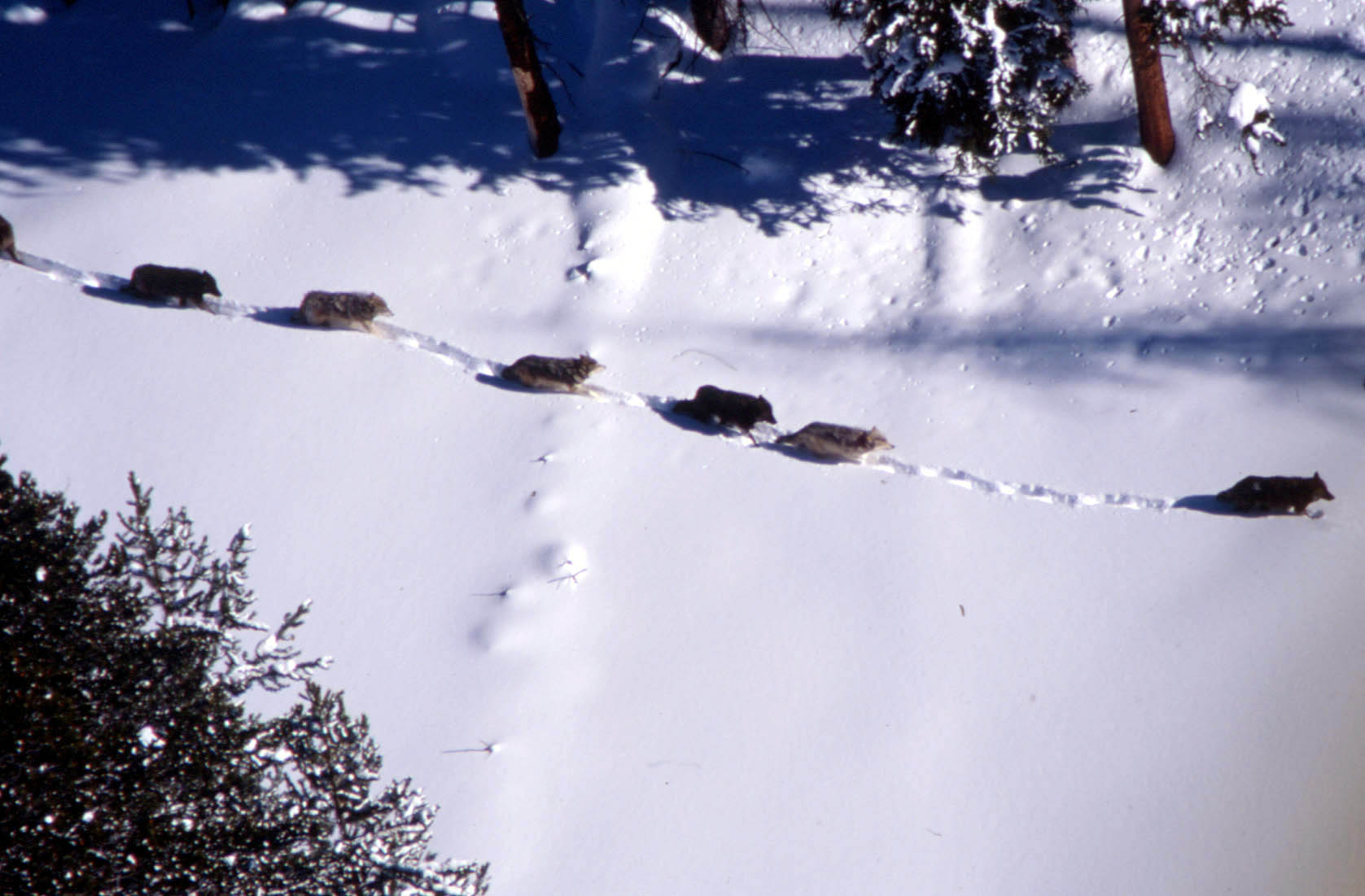More than 100 scientists have signed a letter asking the Biden administration to restore federal protections for the gray wolf.
The Trump administration announced last fall that it would remove the animal from the endangered species list across most of the country beginning in January, prompting lawsuits from environmental and wildlife groups to restore the protections. The Biden administration has said it’s reviewing the delisting, along with other agency decisions as part of a broad executive order issued in January.
In the letter, scientists argue that gray wolves have not recovered to their historic range, including along the West Coast, southern Rockies and the Northeast. In its decision to delist the wolf, they say the U.S. Fish and Wildlife Service within the U.S. Department of Interior wrongly relied on the health of the wolf population in the Great Lakes region, which has grown to around 4,200 wolves in Michigan, Minnesota and Wisconsin.
News with a little more humanity
WPR’s “Wisconsin Today” newsletter keeps you connected to the state you love without feeling overwhelmed. No paywall. No agenda. No corporate filter.
“This argument that the wolf has recovered nationally, simply because we have enough pockets that may be doing well, it doesn’t hold water for a statute that is trying to protect the species at a national level,” said Francisco J. Santiago-Avila, a post-doctoral researcher at UW-Madison who signed the letter.
Researchers also contend that the agency failed to develop a national recovery plan for the animal or follow the best science, including Adrian Treves, a UW-Madison professor of environmental studies who signed the letter.
He said the U.S. Fish and Wildlife Service failed to take into account illegal killings of wolves, an issue he raised during a peer review of the agency’s justification to delist the wolf. Research by Santiago-Avila and Treves released in August last year concluded that reducing protections may incentivize illegal killings of wolves.
“That’s one major way in which they didn’t follow the best available science relating to the major threat of human-caused mortality, which is limiting wolf recolonization of historic range,” said Treves.
Not all scientists support returning wolves to the endangered species list, including Adrian Wydeven, a former state wolf biologist and co-chair of Wisconsin Green Fire’s wildlife working group. Wydeven, who also reviewed the agency’s decision to delist, argued it’s somewhat debatable how much range needs to be recovered before a species is no longer listed as endangered.
“If you’re just looking at the lower 48 states, and if you ignore the Great Lakes region, and you ignore the Northern Rockies, then wolves are probably endangered yet,” said Wydeven. “But, if you look at from another perspective — the North American level — across the continent, they’re occupying about 60% of their historical range, and they’re doing quite well.”
In the letter, scientists also highlighted fears over state management, saying “state governments have clearly indicated that they will manage wolves to the lowest allowable standards.” Treves pointed to Wisconsin’s February wolf hunt where state-licensed hunters blew past their 119-wolf quota and harvested 218 wolves in less than 72 hours.
“I believe another such hunt could bring the wolves and our state to the state delisting level of 250 if the hunt were not regulated very closely,” said Treves.
The number of wolves in Wisconsin had grown from just 25 animals in 1980 to 1,195 wolves prior to the February wolf hunt, according to the DNR. As the number of wolves has expanded, farmers and hunters have reported increasing conflicts with wolves and less tolerance for the animal across their range. Hunters killed nearly 20 percent of the animal’s population in Wisconsin this February while other states like Idaho have signed off on legislation to kill up to 90 percent of its 1,500 wolves.
Wydeven said overly aggressive harvests in states like Montana and Idaho have decreased trust in state management.
“The situation in Wisconsin here didn’t help with the very aggressive harvest we had last winter, so I think part of it is just reaction to some of the recent legislative work by the states,” said Wydeven.
Treves would like to see the U.S. Fish and Wildlife Service put restrictions on states with overly aggressive harvests as part of the agency’s five-year monitoring that follows delisting. Federal wildlife officials say they may consider relisting if actions warranted, but the agency is confident the population will remain strong.
Wisconsin law requires a wolf hunt to be held from November through February when the wolf is not under federal protection. The state drew criticism from tribes, animal rights and environmental groups after a hastily held wolf hunt in February.
The DNR first proposed holding a wolf hunt this fall to allow more time for tribal consultation, public input and updating its outdated wolf management plan. But, Kansas-based Hunter Nation sued the agency to force a season. A Jefferson County judge ordered a hunt to be held in February. The DNR appealed the ruling, but an appeals panel dismissed the case.
The Natural Resources Board set an overall quota of 200 wolves for the hunt that was split between state-licensed hunters and Wisconsin’s Ojibwe tribes. Tribes have declined to hunt wolves because they view the animal as a relative.
The DNR is currently gathering input on updating the state’s outdated wolf management plan and a harvest quota for this fall’s wolf hunt. State wildlife officials are weighing whether to revise wolf harvest regulations to ban night hunting, limit the amount of time hunters can register wolves, and provide tags for specific hunting zones. The Natural Resources Board will take up whether to authorize a hearing on the changes at its next meeting on May 26.
Wisconsin Public Radio, © Copyright 2025, Board of Regents of the University of Wisconsin System and Wisconsin Educational Communications Board.






